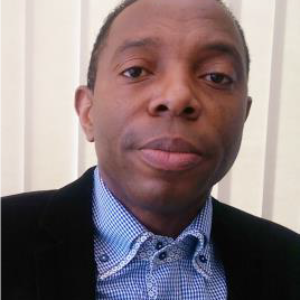Abstract:
Low- and Middle-income Countries (LMICs) in Africa, such as Nigeria have challenges of unsustainable basic infrastructure. This does not allow for competitive, independent, and progressive healthcare system. There is high dependence on unaffordable importation of needed technologies, and challenges of adverse climatic impacts on health. These have contributed to the prevailing high neonatal mortality rate in Nigeria, for example. Effective neonatal care requires sustainable and affordable technologies, which currently remain elusive to these countries. Our extensive neonatal work experience across all regions of Nigeria, spanning over a quarter century, reveals that the country is full of intelligent basic skilled nurses and doctors who could help to lower mortality if the necessary technologies were available. The technology requirements to save the neonates have remained unaffordable and insufficient in most Nigerian centres, creating no immediate hope for mortality reduction. The country’s high poverty rate and 100% dependency on technology-importation has further put any sustainable solution beyond her reach. A possible solution that could alter this negative trend must be radical, affordable, and indigenously driven and self-sustaining.
This presentation highlights the components of our Neonatal Rescue Scheme (NRS) and its recent frugal devices and ideas that could revolutionise neonatal healthcare in Nigerian and other LMICs. These are radical ideas within the contexts of rural healthcare transformation, empowering local people in remote locations of the LMICs with extraordinary knowledge to push their own boundaries of neonatal survival. The rural health centres in the hinterlands of Nigeria are limited in skill and technology to handle neonatal devastating conditions such as extreme prematurity requiring incubator care, respiratory distress syndrome requiring noninvasive respiratory support machines with the use of oxygen delivery techniques, threats of hyper-bilirubinaemia and kernicterus syndrome disorder (KSD) requiring early phototherapy treatment, amongst other conditions. Many neonates in the interior villages die of these conditions because they are unable to successfully journey to the centres in the cities where there could be expertise but without guarantee for survival. Therefore, many of them die without being known or counted. Our NRS is changing all these with technologies that empower the rural community.
We have developed low-cost, rural village compatible devices that could ensure affordability of incubators, CPAP machine application, minor assistive breathing devices and extended reach of oxygen delivery, all applying low voltages that could be harnessed from the sun. Our trialled applications include: the recycled incubator technology (RIT)1 , discovering and creating the antidote to evening fever syndrome (EFS)2 , the Handy Approach (HHA) and Initial Setpoint Algorithm (HISA)3 , the politeheartCPAP machine4 , the politeoxygen splitter system (PSS)5 , the polite-light-bank (PLB)6 , and other applications, which are currently in use at some rural centres of Nigeria. These are affordable technologies that are reliant on sunlight-harnessed and converted energy for operation, with which Nigerian centres like the Niger-State’s Amina-centre in Minna has used in lowering neonatal mortality from 90% to 4% within six years of operation. The combination of these technologies and the training provided for the local practitioners have provided a strong intervention confidence which they applied to adequately catered for the needy neonates simultaneously within their rural location, hence revolutionising the once precarious situations. The Minna case shows that the LMICs can be empowered for a self-sustaining and independent healthcare, pushing their own boundaries of development and resilience.
Audience Take Away Notes:
- A new approach to indigenous people collaboration in global health
- Considerations for tailored LMIC systems design
- Low-cost solutions that achieve high impacts at LMICs




